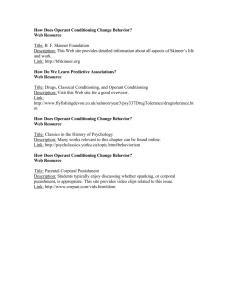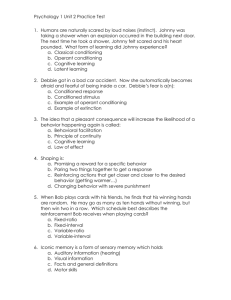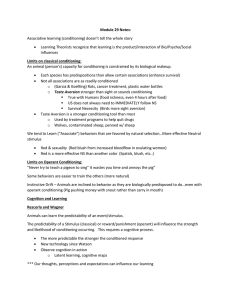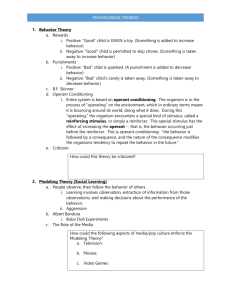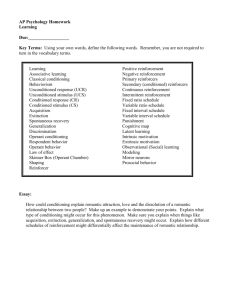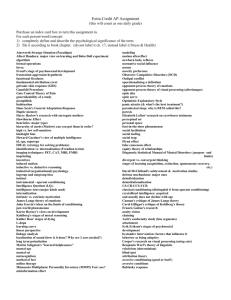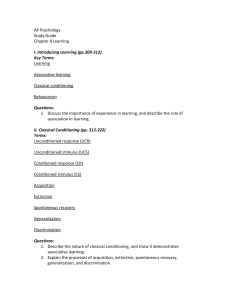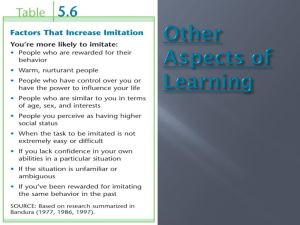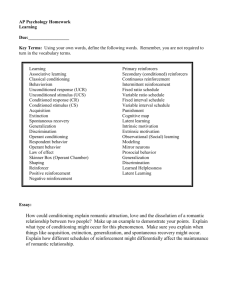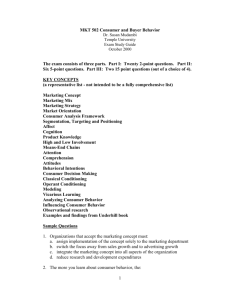unit 4 psychology
advertisement
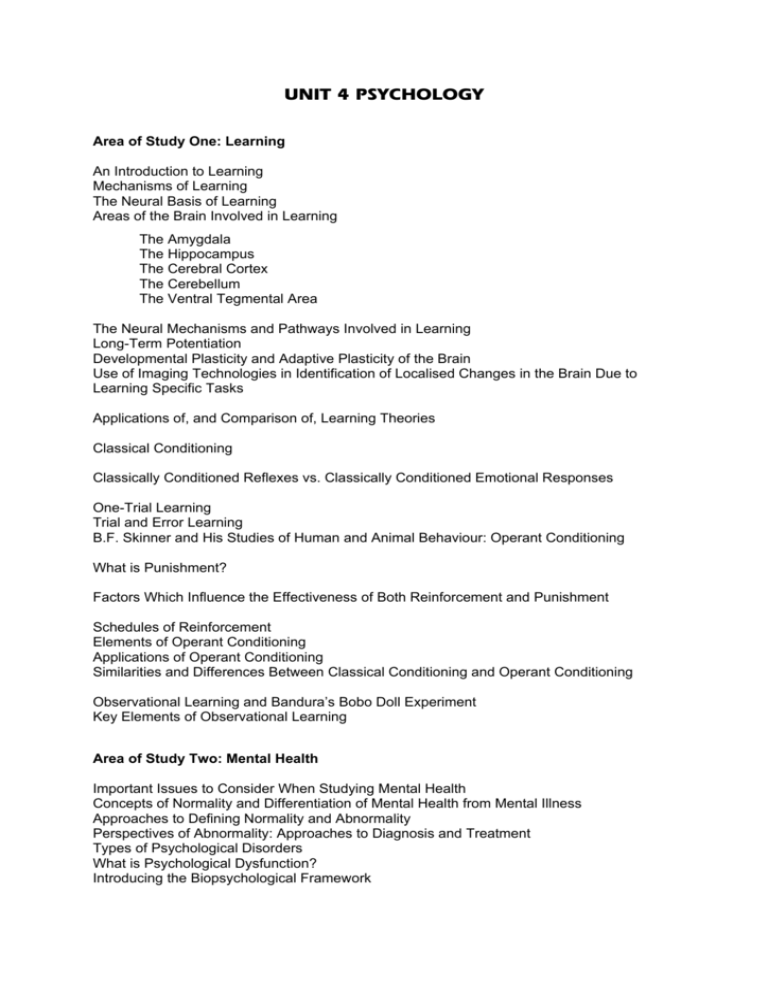
UNIT 4 PSYCHOLOGY Area of Study One: Learning An Introduction to Learning Mechanisms of Learning The Neural Basis of Learning Areas of the Brain Involved in Learning The Amygdala The Hippocampus The Cerebral Cortex The Cerebellum The Ventral Tegmental Area The Neural Mechanisms and Pathways Involved in Learning Long-Term Potentiation Developmental Plasticity and Adaptive Plasticity of the Brain Use of Imaging Technologies in Identification of Localised Changes in the Brain Due to Learning Specific Tasks Applications of, and Comparison of, Learning Theories Classical Conditioning Classically Conditioned Reflexes vs. Classically Conditioned Emotional Responses One-Trial Learning Trial and Error Learning B.F. Skinner and His Studies of Human and Animal Behaviour: Operant Conditioning What is Punishment? Factors Which Influence the Effectiveness of Both Reinforcement and Punishment Schedules of Reinforcement Elements of Operant Conditioning Applications of Operant Conditioning Similarities and Differences Between Classical Conditioning and Operant Conditioning Observational Learning and Bandura’s Bobo Doll Experiment Key Elements of Observational Learning Area of Study Two: Mental Health Important Issues to Consider When Studying Mental Health Concepts of Normality and Differentiation of Mental Health from Mental Illness Approaches to Defining Normality and Abnormality Perspectives of Abnormality: Approaches to Diagnosis and Treatment Types of Psychological Disorders What is Psychological Dysfunction? Introducing the Biopsychological Framework What is Classification? DSM-IV-TR ICD-10 Dimensional Approaches What are the Problems Associated with Diagnosis and Dimensional Ratings in Such systems? Stress and the Biopsychosocial Framework Physiological Responses to Stress The Fight-or-Flight Response How Do We React in a Threatening Situation? Selye’s General Adaptation Syndrome Lazarus and Folkman’s Transactional Model of Stress and Coping Social, Cultural and Environmental Factors that Exacerbate and Alleviate the Stress Response Calhoun’s 1962 Experiments on the Potential Effects of Crowding Research Methods and Ethical Principles Associated with the Study of Learning The Experiment in Psychological Research Three Experimental Designs The Analysis and Interpretation of Data About Conclusions and Generalisations What is an Extraneous Variable? What is a Confounding Variable Repeated Measures Design Matched Participants Design Qualitative and Quantitative Data Collection Reliability and Validity in Research Ethical Principles Exam Hints
